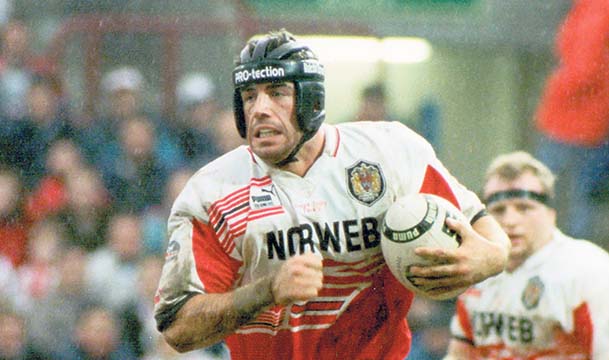 Having firmly established himself as one of the world’s best backrowers, Phil Clarke’s playing career ended prematurely in 1996 when, aged 24, he broke his neck playing for Sydney Roosters.
Before that he had already won six league titles and five Challenge Cups at Wigan. He played 16 times for Great Britain, captaining them once, and six ti
Having firmly established himself as one of the world’s best backrowers, Phil Clarke’s playing career ended prematurely in 1996 when, aged 24, he broke his neck playing for Sydney Roosters.
Before that he had already won six league titles and five Challenge Cups at Wigan. He played 16 times for Great Britain, captaining them once, and six ti Rugby League Heroes: Phil Clarke (Part 1)
 Having firmly established himself as one of the world’s best backrowers, Phil Clarke’s playing career ended prematurely in 1996 when, aged 24, he broke his neck playing for Sydney Roosters.
Before that he had already won six league titles and five Challenge Cups at Wigan. He played 16 times for Great Britain, captaining them once, and six ti
Having firmly established himself as one of the world’s best backrowers, Phil Clarke’s playing career ended prematurely in 1996 when, aged 24, he broke his neck playing for Sydney Roosters.
Before that he had already won six league titles and five Challenge Cups at Wigan. He played 16 times for Great Britain, captaining them once, and six ti 